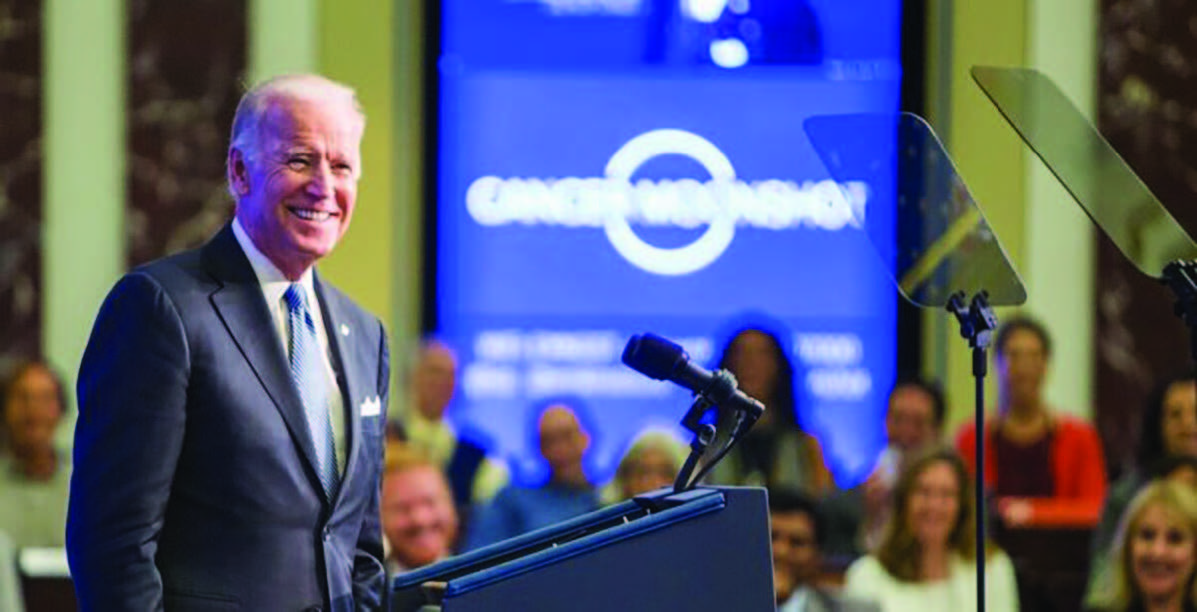
President Biden’s publicly visible faith and the polarized views of him among American Catholics reflect both a struggle within the faith over its direction and a political struggle over the Catholic vote. In a feature article in Time magazine (April 12/April 19), Brian Bennett notes that while they were formerly a reliably Democratic constituency, growing divisions among Catholics have made them a key target for both major parties, with Republicans seeking to win over Hispanic Catholics in particular as part of their effort to expand their voter base beyond older whites. This is part of the reason Biden has been trying to strengthen ties to Catholic faith-based organizations by making the case that his administration has been working on behalf of favored policies like alleviating poverty, aiding refugees, and stopping executions. Catholics made up 20 percent of voters in the 2020 election and roughly half voted for Biden.
While claiming to separate his personal beliefs from his policies in the case of abortion and LGBT rights, Biden is much more public about his Catholic identity than was President John F. Kennedy, his one Catholic predecessor. His reliance on his faith as a personal resource and moral guide is readily evident in his regular and longstanding devotional practices (as well as his overcoming the tragic losses of his first wife and two children), and he publicly avows it. But combined with his support for some policies opposed to church doctrine, Bennett writes that many top bishops and conservative Catholics see him as embodying “a more liberal version of the faith that poses a threat to the future of the church in America.” Archbishop Joseph Naumann of Kansas City, Kansas, who has suggested Biden should be denied Communion for his stance on abortion, reflected a cynical view of his visible personal faith, accusing him of “attempting to confuse people about Catholic teaching by trampling on the sanctity of human life while presenting himself as a devout Catholic.” Los Angeles Archbishop José Gomez, head of the U.S. Conference of Catholic Bishops, said that the contradiction between Biden’s outward faith and policy positions “creates confusion among the faithful about what the church actually teaches on these questions.”

Source: Eric Haynes (Creative Commons).
With the church in America having suffered a net loss of five million members over the last decade, according to Pew, these views reflect conservatives’ diagnosis of the exodus as due to a lack of clarity in church teachings. Liberals, on the other hand, believe the church has not been evolving quickly enough. Biden’s type of approach highlighting the valuable role of faith in one’s life has been embraced by Pope Francis as a way to make the church more relevant in a changing world. Notwithstanding the criticism he has received from conservatives, some members of Biden’s inner circle think his sincere personal devotion could bring more American Catholics to the church and help them find common ground.
But while Biden’s Catholicism is distinct, it is also part of a religious left with different expressions—from Barack Obama’s mainline Protestantism to the black-church liberation theology of newly elected Georgia senator, Raphael Warnock, not to mention progressive forms of Judaism, Islam, and alternative spiritualities. The New Republic (April 15) notes that one of the persistent challenges for the religious left is “navigating such a motley assortment of faiths while recognizing that spiritual sustenance and political perseverance often come from plumbing the depths of a tradition.” For instance, Warnock’s black liberationist faith and activism may have helped mobilize the religious black electorate, but his spiritual appeal is “rooted in a particularistic faith that can’t necessarily scale up into a force capable of wielding the influence” of anything like the postwar ecumenical religious consensus of the 1950s, or even the civil religion of the early 1960s and the civil rights movement. “A campaign like Warnock’s, by contrast, took place in the midst of religious fragmentation and disaffiliation—the rise of the nones, the spiritual but not religious,” Matthew Sitman writes. Thus, Biden’s liberal Catholicism and these other streams of the religious left not only have to contend with each other but “operate in tandem with a broad liberal left that is rapidly secularizing.” —This article was written with Brian Bartholomew, RW’s copy editor